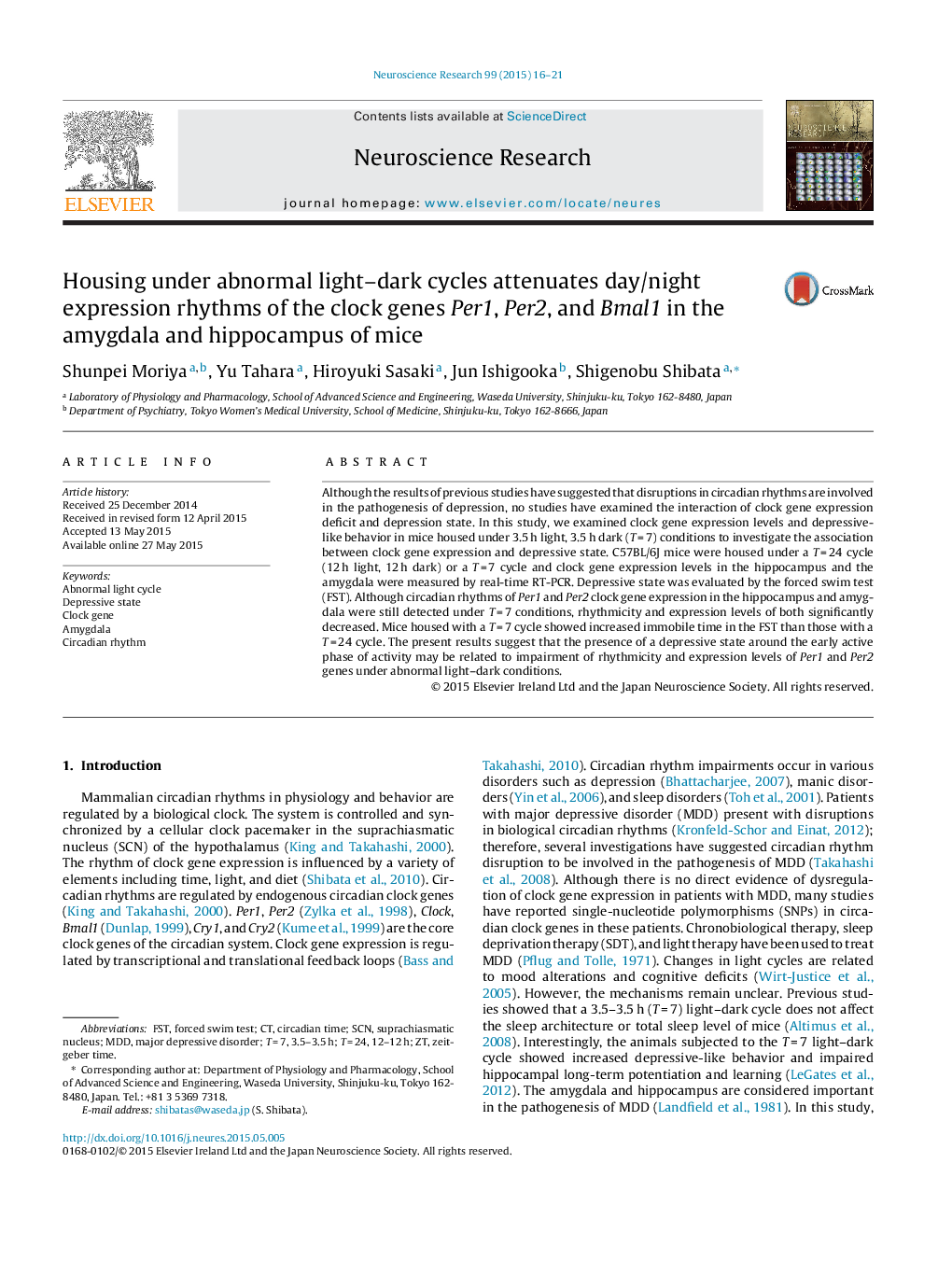| Article ID | Journal | Published Year | Pages | File Type |
|---|---|---|---|---|
| 4351324 | Neuroscience Research | 2015 | 6 Pages |
•Abnormal light–dark condition impaired the locomotor activity rhythm in mice.•Abnormal light–dark condition causes the impairment of clock gene expression rhythm.•Abnormal light–dark condition potentiates the immobility in forced-swimming test.•Interaction between circadian impairment and depression is suggested.
Although the results of previous studies have suggested that disruptions in circadian rhythms are involved in the pathogenesis of depression, no studies have examined the interaction of clock gene expression deficit and depression state. In this study, we examined clock gene expression levels and depressive-like behavior in mice housed under 3.5 h light, 3.5 h dark (T = 7) conditions to investigate the association between clock gene expression and depressive state. C57BL/6J mice were housed under a T = 24 cycle (12 h light, 12 h dark) or a T = 7 cycle and clock gene expression levels in the hippocampus and the amygdala were measured by real-time RT-PCR. Depressive state was evaluated by the forced swim test (FST). Although circadian rhythms of Per1 and Per2 clock gene expression in the hippocampus and amygdala were still detected under T = 7 conditions, rhythmicity and expression levels of both significantly decreased. Mice housed with a T = 7 cycle showed increased immobile time in the FST than those with a T = 24 cycle. The present results suggest that the presence of a depressive state around the early active phase of activity may be related to impairment of rhythmicity and expression levels of Per1 and Per2 genes under abnormal light–dark conditions.
